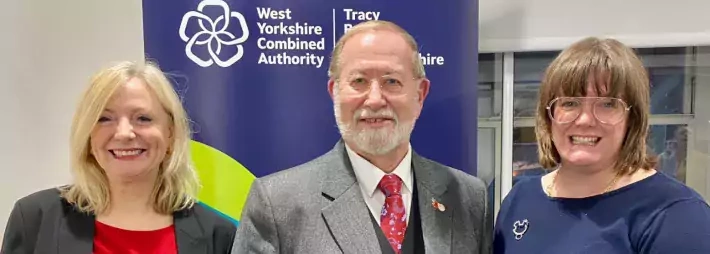Harnessing devolution to create the motor industry’s future skills

In an illuminating evidence session in Leeds for the Skills Commission Inquiry, chaired by Tracy Brabin, Mayor of West Yorkshire, and Graham Hasting-Evans, Chief Executive of NOCN Group, the spotlight was on the devolution of skills training, its current efficacy, and the path forward. With automotive sector employment pivotal in the region, especially Leeds as a hub, this discussion couldn’t be timelier.
A snapshot of skills devolution success and struggles
Since 2015, skills devolution has progressed, transferring the control of adult education to local authorities in England. The adult education budget (AEB), now 60% devolved, has been a cornerstone in this transformation. Despite the successes, the automotive industry is navigating a challenging skills gap. Leeds, an automotive retail powerhouse, is part of the nine mayoral combined authorities benefiting from the devolution, which brings both opportunities and challenges to the local skills landscape.
The automotive workforce in England is robust, but concerns are deep-seated. With 87% of the workforce in the sector and shortages so concerning that they are second only to hospitality, initiatives like the IMI’s There’s More to Motor Campaign are crucial. The campaign’s launch is timely, as the sector’s complexity escalates, evidenced by the increasing intricacy of vehicles, with 5% of cars boasting autonomy at the end of 2022.
A deepening concern
The IMI reports a current significant shortfall of technicians, with projections suggesting a spike to 51,000 by 2030. These figures are a clarion call for immediate action. With 45,800 technicians needed over the next decade and only 16% of the workforce nationally Techsafe qualified, the skills gap is not a looming threat—it’s a present dilemma. The immediate concern of ADAS capable technicians is a hot talking point industry wide, and now developing attention from the wider national community owing to the potential impact on road safety and economical private transport availability.
Devolution in action
Trailblazer deals in Greater Manchester and the West Midlands, granting more control over skills boot camps and adult skills funding, signal a robust start. These efforts aim to match local employers’ needs with skills training. However, the automotive sector’s complexity requires targeted strategies. Success stories like the Skills Boot Camps in Exeter showcase what focused efforts can achieve, but they also highlight the need for a deeper, more nuanced approach to technical education in the automotive field.
Challenges ahead: AEB and beyond
The AEB is vital, yet under-publicised. This shortfall affects the motor industry, where awareness and uptake of the AEB could be transformative. Furthermore, the session emphasised that FE lecturer shortages and industry wage competition are ongoing hurdles, indicating the need for a strategy that tackles these systemic challenges head-on.
Finding equilibrium
As devolution promises local empowerment, ensuring the alignment of regional skill development with national quality standards remains imperative. The motor industry, with its unique demands, serves as a litmus test for this balance. As the automotive sector’s skill requirements evolve with technological advancements, the industry must remain at the forefront of shaping and benefiting from skills policy developments.
The road ahead
The Leeds session provided crucial insights for the Skills Commission inquiry – “Skills 2030 - A World Class Skills System.” The future of the motor industry, with its urgent need for skilled technicians and advanced technical education, hinges on the effective devolution of skills training. It requires an unprecedented synergy between local authorities, employers, and education providers.
To our members, this gathering heralds a significant era. As we embrace the potential of skills devolution, we must also be the architects of our future. It is imperative to engage with the devolution process proactively, to ensure the sustainability and growth of our industry.
Let’s rally behind initiatives like the IMI’s There’s More to Motor Campaign and actively partake in shaping the educational strategies that will define the motor industry’s future. It’s not just about filling vacancies; it’s about paving a future-ready path for the next generation of automotive excellence.
Hayley Pells is Policy and Public Affairs Lead at the Institute of the Motor Industry




